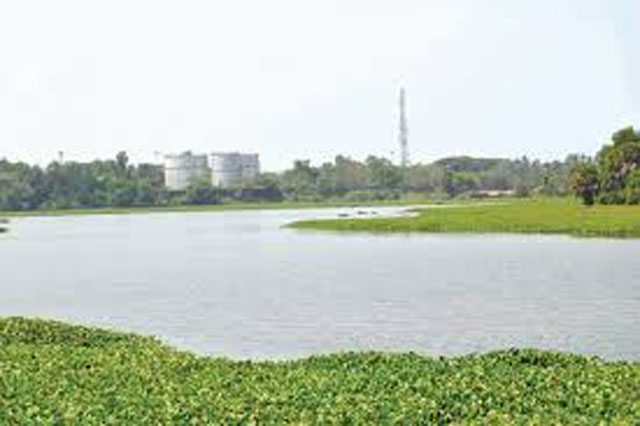Daijiworld Media Network - Mangaluru
Mangaluru, Oct 12: After years of civic activism and environmental advocacy, the long-neglected Baggundi Lake near Kulai, Mangaluru, is finally set for a major revival.
Under the AMRUT (Atal Mission for Rejuvenation and Urban Transformation) scheme, the government has sanctioned Rs 20 crore for the lake's development, and official survey work began on Saturday, marking a significant step forward.
Officials from the district administration and the Mangaluru City Corporation were present as surveyors began mapping the lake’s existing boundaries, including land earlier acquired by the KIADB (Karnataka Industrial Areas Development Board).

“We’ve started identifying the lake’s current spread and demarcating the acquired area. The first priority will be securing the lake’s perimeter and constructing retaining walls,” said a senior official on site.
First phase targets protection and boundary marking
Government records list the original lake area at 13 acres, but plans are underway to include an additional 72 acres previously allocated to JESCO, an industrial project. This broader land base opens the door for a more ambitious redevelopment vision.
Citizen campaign pays off
The restoration comes after relentless campaigning by local groups including Spandana Friends Circle – Kulai, the Rotary Club, and several resident associations. Volunteers had earlier suggested controlled chemical treatment to remove havase (an invasive aquatic weed), but limited government cooperation had allowed the infestation to return repeatedly.
“Despite continuous on-ground efforts, the lack of administrative support meant the weed kept taking over,” said a member of Spandana Friends Circle.
Media push turned the tide
The issue gained traction after regional daily Udayavani published a series of in-depth reports on the deteriorating state of Baggundi Lake. The coverage prompted authorities to take notice, eventually leading to official inspection visits by senior district officers.
Tourism and recreation potential
Local residents are now calling for a sustainable tourism model to accompany the ecological revival. Suggestions include a walking path, boating facilities, a public park, and a cycling track around the lake.
“The area around Baggundi Lake is bigger than both Kadri Park and Pilikula Nisargadhama. It has tremendous potential as a nature and leisure spot,” said a resident from the Kulai locality.
Once a symbol of civic neglect, Baggundi Lake is now poised for a second life — not just as a restored waterbody but as a community and tourism hub. With Rs 20 crore in funding and strong local backing, this project could become a model for urban lake rejuvenation in coastal Karnataka.